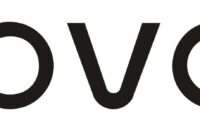NEWTON, Mass. and MILAN, Sept. 24, 2020 /PRNewswire/ — InnovHeart s.r.l., a developer of novel Transcatheter Mitral Valve Replacement (TMVR) systems for the treatment of Mitral Regurgitation (MR), announced today the successful First-in-Human implantation of its proprietary Saturn Transcatheter Mitral Valve along with excellent results at the 30-day follow-up for the patient, a 72 year old male suffering from severe Functional Mitral Regurgitation. The Trans-Apical TMVR procedure was performed as part of an on-going European clinical trial on August 19, 2020 at Santaros Klinikos University Hospital in Vilnius, Lithuania with the Heart Team of Kęstutis Ručinskas, MD, Audrius Aidietis MD, Vilius Janušauskas, MD and Valdas Bilkis, MD supported by Paolo Denti, MD and Stefano Stella, MD.
“We are grateful to have had the opportunity to work with Dr. Denti, Dr. Stella, and the InnovHeart team in order to provide a novel treatment option for this high-risk patient,” said Dr.Kęstutis Ručinskas, Primary Investigator and Head of Cardiac Surgery at Santaros Klinikos. “Although it was the first clinical use of the Saturn valve, the procedure was straight-forward, and the valve was implanted successfully with excellent function.”
“The Saturn implant is unique in the way it combines a transcatheter bioprosthetic valve with an annular structure to remodel the native annulus and seal the perimeter of the implant, thus eliminating mitral regurgitation and restoring optimal valve function,” added Dr. Audrius Aidietis, Head of Interventional Cardiology at Santaros Klinikos. “After 30 days, the patient has already experienced a noticeable reduction in symptoms, with improvements in six-minute walk test, KCCQ Quality of Life survey and a reduction from NYHA III to NYHA II. In addition, the valve continues to exhibit outstanding hemodynamic performance with no MR and no outflow tract obstruction.”
“Having worked with Giovanni Righini and the InnovHeart team throughout the pre-clinical development, I am pleased to have reached this important milestone together in the interest of the many patients suffering from severe MR,” said Paolo Denti, MD, InnovHeart Consultant and Cardiac Surgeon at San Raffaele University Hospital in Milan, Italy. “This was a multidisciplinary success. Every step of the procedure was methodical and controlled with standard echo and fluoro imaging. More importantly, the patient was stable throughout the procedure, despite severe ventricular dysfunction. It did not feel like a first human implant, and the short duration of the procedure speaks for itself. I am confident that the Saturn TMVR system will become a valuable new therapy with fewer exclusion criteria than other technologies, with the potential to treat a wider range of patients.”
“The initial clinical experience has been very encouraging and confirms the unique benefits the Saturn TMVR system can offer in terms of annular support, LVOT preservation, sealing capability and procedural predictability. We look forward to providing similar comprehensive treatment for many other patients with MR in the future. Continued enrollment in our European Trans-Apical Pilot Study will provide valuable follow-up data and support for the on-going development of our Trans-Septal delivery system, which utilizes the same Saturn implant,” added Brent Ratz, InnovHeart Chief Executive Officer.
Caution: The Saturn TMVR system is limited to investigational use and is not commercially available.
About InnovHeart
InnovHeart s.r.l, with locations in Milan, Italy, and Newton, Mass., USA, develops Transcatheter Mitral Valve Replacement systems (TMVR) to treat patients suffering from mitral valve disease. The company is conducting clinical trials of its novel Saturn TMVR system. Saturn is a low-profile mitral heart valve designed for trans-apical or trans-septal delivery.
SOURCE InnovHeart






